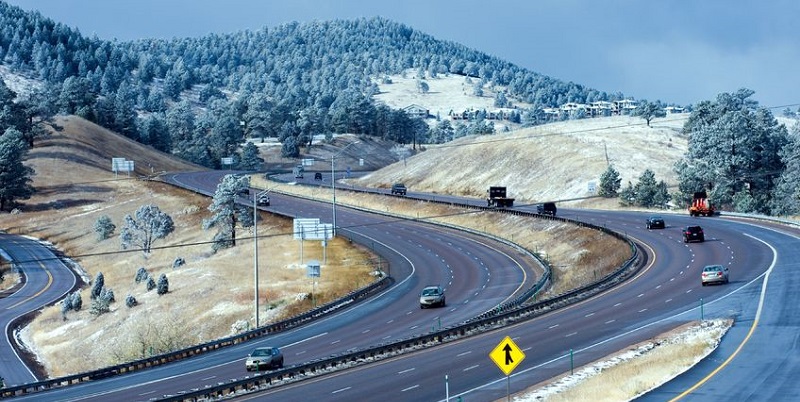RoadX is working with electronics giant Panasonic to develop 90 miles of Interstate 70 as a smart highway.
‘Smart Tech’ Promises Greater Safety, Efficiency
Colorado is investing in technology that could help cars prevent auto accidents by talking to one another and to the roads themselves, causing the state’s roadway deaths to plummet to lows not seen since police have kept count.
RoadX, a program of the Colorado Department of Transportation, is working on that future today. Peter Kozinski, RoadX director, said:
RoadX … is taking a different mentality in getting high levels of automation and ultimately autonomous vehicles on our roads sooner rather than later. And the reason we’re doing that is that it is well-documented that these vehicles will save lives.
Facing budgetary cutbacks at the same time as population and highway traffic are increasing, Colorado doesn’t have the money “to build our way out of congestion.” he said. Instead, it will use technology to make the road systems as efficient as possible.
Overcoming Mistrust of New Technology
People may distrust robotic cars, but the benefits will be too great to avoid, Kozinski said, pointing to the 606 people who died on Colorado’s roadways in 2016. It’s well-documented that the vehicles can cut traffic death rates by 80 percent and reduce accidents by 94 percent.
“If 80 percent of those people’s lives can be saved, that’s huge, and that’s what we have to pursue,” he said.
He predicts the public will adopt the technologies the same way it, sometimes begrudgingly, shifted from typewriters to computers. Exposing people to the tech’s benefits is the key. Seatbelts, airbags, and antilock brakes were widely mistrusted when they were introduced, but most people have embraced them as safety improvements.
Eventually, smart-car owners will be like smart-phone owners today, Kozinski said. Owners will question how they ever lived without them.
“We’re not attempting to make it happen faster. We’re enticing the industries that are doing these things and giving them an environment to showcase this technology and letting people decide.”
Innovating businesses generally need to show proven examples of their technologies before governments will invest in them. RoadX, however, is inviting these companies to demonstrate their tech in Colorado first.
Delivering Progress
Kozinski touted a couple of RoadX’s successes: The first delivery by an autonomous truck made headlines around the world in October 2016. The driverless semi-tractor trailer drove 120 miles from Colorado Springs to Fort Collins to deliver a shipment of Budweiser beer, as reported by Jesse Paul of the Denver Post. A division of the ride-sharing business Uber engineered the robotic truck.
RoadX is working with electronics giant Panasonic to develop 90 miles of Interstate 70 as a smart highway. Panasonic, which recently located a division near Denver International Airport, is working on technologies to connect smart cars to one another and to the smart road itself, as reported by the Denver Post’s Tamara Chuang. A smart road could warn cars about a traffic light ahead, stopped cars, or ice patches.
Panasonic Enterprise Solutions Co. President Jim Doyle praised Colorado for stepping up to help develop the car-to-car and car-to-road systems, Chuang wrote.
“This … is the foundation of what will be the bedrock of autonomous driving,” Doyle said. “If you don’t have those in place, you really can’t get to true autonomous driving in a way that the public will feel confident and safe.”

